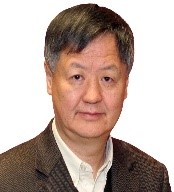
报 告 人:王钧院士
工作单位:香港城市大学(中国香港)
报告题目:神经动力优化方法的历史、现在和展望
报告时间:2023年5月24日(周三)14:30-15:30
报告链接:Teams Link
https://teams.microsoft.com/l/meetup-join/19%3aB4gmRcUATAMA2iJqi-xXvtfPFfTbxVJPxSW_pcAPBao1%40thread.tacv2/1638719716825?context=%7b%22Tid%22%3a%2222804ebb-30d5-47df-942f-f3a3722f0225%22%2c%22Oid%22%3a%2216a60c03-ad7a-4b85-a403-8ebd947e010c%22%7d
内容摘要:
优化在自然界和社会中无处不在,是科学、工程和商业中解决问题的重要工具。优化问题出现在各种各样的应用中,如工程系统的设计、规划、控制、操作和管理。在许多应用中(如移动设备中的在线模式识别和片内信号处理),实时优化是必要的或有益的。对于此类应用,由于对计算时间的严格要求,传统的优化技术可能无法胜任。当优化程序必须实时进行以优化动态系统的性能时,优化方法在计算上具有挑战性。过去的三十年见证了神经动力优化的诞生和发展。尽管一些基于电路的优化方法在早期被开发出来,但也许是Hopfield和Tank在20世纪80年代中期的开创性工作,率先在神经计算的背景下开展了神经动力优化研究。Tank和Hopfield将连续时间的Hopfield网络扩展为线性编程。Kennedy和Chua开发了一个用于非线性编程的神经网络。事实证明,神经动力学的状态是全局收敛的,是对应于给定优化问题的近似最优解的均衡。多年来,神经动力优化研究取得了重大进展,有许多具有改进功能的模型用于解决各种优化问题。神经动力优化理论和模型在几个方面都有了实质性的改进。本报告将从神经动力优化的想法和动机开始,回顾发展历史,并通过许多模型和选定的应用介绍神经动力优化的技术现状。同时将给出关于神经动力优化模型的状态稳定性、输出收敛性和解的最优性的理论结果,以及许多说明性的例子和仿真结果。四类神经动力优化模型设计方法(即惩罚方法、拉格朗日方法、二重性方法和优化方法)将被划定,并讨论其特点。此外,它将表明,信息处理、系统控制和机器人学中的许多实时计算优化问题(例如,并行数据选择和排序、线性反馈控制系统中的鲁棒分配、非线性系统的鲁棒模型预测控制、有或无扭矩优化的运动冗余机器人操纵器的无碰撞运动规划和控制,以及多指机器人手的抓取力优化)可以通过神经动力学优化方法来解决。最后,将讨论前瞻性的未来研究方向。
个人简介:
王钧院士是香港城市大学计算机科学系和数据科学学院计算智能讲座教授。在此之前,王钧院士曾在大连理工大学、凯斯西储大学、北达科他大学和香港中文大学担任过多个学术职位,还曾在美国空军阿姆斯特朗实验室、日本理化学研究所脑科学研究所、大连理工大学、华中科技大学和上海交通大学担任过各种短期访问职位。王钧院士获得了学士学位电气工程学位和硕士学位大连理工大学学士及博士学位、凯斯西储大学学位。他目前的研究兴趣包括神经网络及其应用,并在这些领域发表了270 余篇期刊论文、15 部专著章节、11 部编辑专著和大量会议论文。王钧院士在2014-2019年间曾任IEEE Transactions on Cybernetics主编,并担任 IEEE Transactions on Neural Networks、IEEE Transactions on Cybernetics 及其前身和 IEEE Transactions on Systems, Man, and Cybernetics:C,担任Neural Networks 编委、International Journal of Neural Systems 顾问编委。王钧院士也是许多国际会议的组织者,如第 13/25 届神经信息处理国际会议 (2006/2018) 的总主席、2008 年 IEEE 世界计算智能大会和 2012 年 IEEE 国际会议的程序主席,也是IEEE Life Fellow、IAPR Fellow、CAAI Fellow、Academia Europaea(欧洲科学院)外籍院士,IEEE 计算智能学会 (CIS) 和 IEEE 系统、人与控制论学会 (SMCS) 的杰出讲师。此外,他还曾在亚太神经网络大会(APNNA)担任主席(2006年)、IEEE Fellow Committee、IEEE CIS Awards and Fellow Committees、IEEE SMCS Board and Fellow Committees等多个专业组织。王钧院士是 APNNA 杰出成就奖、IEEE CIS 神经网络先驱奖、CAAI 吴文俊人工智能科技成就奖、IEEE SMCS 诺波特-维纳奖和杰出贡献奖等奖项的获得者。
【编辑:王健】
英文版:
Academic Report Notice of Jun Wang : Nonlinear and Robust Model Predictive Control Based on Collaborative Neurodyanmic Optimization
Speaker: Academician Jun Wang

Title: Nonlinear and Robust Model Predictive Control Based on Collaborative Neurodyanmic Optimization
Time: 14:30 pm, May 24, 2023 (Wednesday)
Link: https://teams.microsoft.com/l/meetup-join/19%3aB4gmRcUATAMA2iJqi-xXvtfPFfTbxVJPxSW_pcAPBao1%40thread.tacv2/1638719716825?context=%7b%22Tid%22%3a%2222804ebb-30d5-47df-942f-f3a3722f0225%22%2c%22Oid%22%3a%2216a60c03-ad7a-4b85-a403-8ebd947e010c%22%7d
Abstract:
Model predictive control (MPC) is an advanced control methodology widely accepted by both academics and industries. In this talk, nonlinear and robust MPC approaches will be presented based on multiple neural networks. To tackle the nonconvexity in the problem formulation with nonlinear systems, the original nonconvex optimization problem associated with nonlinear MPC is first reformulated as a convex one by means of decomposition via Taylor expansion. An online supervised learning algorithm is initially developed for estimating the unknown residual term resulted from the decomposition. To save online computational time, offline supervised learning is also carried out based on feedforward neural networks for parameter estimation. In addition, a collaborative neurodynamic optimization approach is developed with several neurodynamic optimization models for nonlinear MPC without linearization. The results are extended for robust MPC based on minimax and invariant-tube formulations. Simulation results of many examples are provided to demonstrate the effectiveness and performance of the proposed approaches for the control of mechatronic systems.
Personal Introduction:
Jun Wang is the Chair Professor Computational Intelligence in the Department of Computer Science and School of Data Science at City University of Hong Kong. Prior to this position, he held various academic positions at Dalian University of Technology, Case Western Reserve University, University of North Dakota, and the Chinese University of Hong Kong. He also held various short-term visiting positions at USAF Armstrong Laboratory, RIKEN Brain Science Institute, Dalian University of Technology, Huazhong University of Science and Technology, and Shanghai Jiao Tong University (Changjiang Chair Professor). He received a B.S. degree in electrical engineering and an M.S. degree in systems engineering from Dalian University of Technology and his Ph.D. degree in systems engineering from Case Western Reserve University. His current research interests include neural networks and their applications. He published over 200 journal papers, 15 book chapters, 11 edited books, and numerous conference papers in these areas. He is the Editor-in-Chief of the IEEE Transactions on Cybernetics. He also served as an Associate Editor of the IEEE Transactions on Neural Networks (1999-2009), IEEE Transactions on Cybernetics and its predecessor (2003-2013), and IEEE Transactions on Systems, Man, and Cybernetics – Part C (2002–2005), as a member of the editorial board of Neural Networks (2012-2014), editorial advisory board of International Journal of Neural Systems (2006-2013. He was an organizer of several international conferences such as the General Chair of the 13th International Conference on Neural Information Processing (2006) and the 2008 IEEE World Congress on Computational Intelligence, and a Program Chair of the IEEE International Conference on Systems, Man, and Cybernetics (2012). He is an IEEE Fellow, IAPR Fellow, and an IEEE Systems, Man and Cybernetics Society Distinguished Lecturer (2017-2018), and was an IEEE Computational Intelligence Society Distinguished Lecturer (2010-2012, 2014-2016). In addition, he served as President of Asia Pacific Neural Network Assembly (APNNA) in 2006 and many organizations such as IEEE Fellow Committee; IEEE Computational Intelligence Society Awards Committee; IEEE Systems, Man, and Cybernetics Society Board of Governors, He is a recipient of an IEEE Transactions on Neural Networks Outstanding Paper Award and APNNA Outstanding Achievement Award in 2011, Neural Networks Pioneer Award from IEEE Computational Intelligence Society in 2014, among other distinctions.
[Editor: Jian Wang]